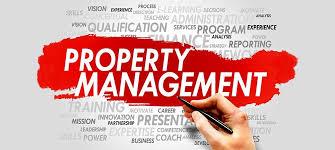Being a homeowner has its own perks, although its not an easy venture. And if you have bad credit, it’s almost like an impossible dream. But not to worry, we’re here to show you how you can become a homeowner, even with bad credit. Also, if you think you’re too young to become a homeowner, we have something for you.
How To Become A Homeowner
#1. Make a Budget
Every large purchase should begin with a well-planned budget that includes your debt, income, and assets. You should also consider the costs of owning in a practical manner. How much can you afford for monthly mortgage payments, property insurance, taxes, and homeowners association fees combined? (if applicable). Make sure to give some wiggle room for unanticipated expenses as well.
This will give you a better idea of what you can afford and how much money you have set aside for a down payment.
Buyers in high-priced locations may need to think outside the box when it comes to purchasing a home.
#2. Clean Up Your Credit
Get your credit in order because it affects your interest rate directly.
Whether you have no credit, moderate credit, or bad credit, improving your FICO score is an important step in becoming a homeowner. Most lenders will require a minimum credit score of 620 to qualify for a conventional mortgage. Other programs, such as FHA and VA loans, have less stringent or no credit score criteria, so you may still be able to buy a home with a lower credit score.
The second reason to improve your credit score is that a higher credit score entitles you to a lower interest rate. The lower your interest rate, the less you’ll pay in interest each month and over the term of the loan.
Meet with a financial consultant if you need help managing your money or figuring out how to enhance your credit.
#3. Put Money Aside For A Down Payment
For most first-time buyers, a down payment is one of the most significant hurdles to homeownership. As home prices rise, so does the cost of down payment, particularly if you wish to avoid paying private mortgage insurance (PMI). PMI is an additional charge added to your regular monthly mortgage payment, often ranging from 0.58 to 1.86 percent of the loan amount. Homeowners who put less than 20% down on a conventional or FHA loan must pay PMI (VA loans do not have this requirement). The charge is eliminated once you have accumulated 20% equity in your property.
If you have less than 20% saved for a down payment, you should include PMI in your budget when calculating housing expenditures.
Most first-time buyers must dive into their savings or investments to make a down payment. Family members can also contribute to your down payment, which normally necessitates the use of a gift letter. A real estate agent may assist you in creating this agreement; just be sure to include all of the relevant information, such as the amount of money being given to you, a statement stating that the money is a gift rather than a loan, and where the money is coming from (checking account, etc.).
#4. Determine The Best Mortgage Option For You
It’s critical to figure out what kind of mortgage you want as well as what you qualify for. A real estate agent can assist you in identifying loans and lenders that are appropriate for your goals and financial circumstances. This is an excellent opportunity to solicit recommendations from friends and coworkers.
If your FICO score is less than 620, you may be unable to obtain a traditional mortgage. However, other financing options, including FHA, VA, and USDA loans, may be available. However, these loans are subject to restrictions that standard mortgages do not.
For example, getting a fixer-upper with an FHA loan is more difficult, and in this hyper-competitive housing market, some sellers are avoiding buyers with more bureaucratically complex loans. This is where you must return to your balance sheet and evaluate what you have against what you require and desire. Different loans have their own set of benefits and downsides, so it’s critical to do your homework.
Those who want to pay off their loans sooner and at a cheaper interest rate can choose a 15-year mortgage over a 30-year mortgage. A shorter-term results in greater monthly payments but a lower overall loan cost because you pay less interest over the life of the mortgage.
Homebuyers on a fixed income are usually better off with a lengthier loan since they can still make extra payments toward their principal (as their budget allows) without the continual obligation of higher monthly payments. If a person loses their job or has an emergency expenditure, they can cease making extra payments and merely pay the minimum required until they can afford to boost their spending again later.
#5. Obtain A Mortgage Preapproval
Find out how much mortgage you qualify for before you start looking for a home. Preapproval is the best way to accomplish this.
You will offer lenders thorough information about your employment history, income, debt, assets, and credit profile in order to do so. The lender will check your credit and verify the information you supply.
If you are preapproved, you will be given a loan estimate outlining how much you can borrow. A preapproval letter is a valuable asset while looking for a home because it informs sellers that you are a serious and qualified buyer.
#6. Sign A Home Buying Agreement
You can begin shopping with your preapproval letter in hand. This is the most exciting part of purchasing a home. You might fantasize about the pool parties you’ll throw or the long baths you’ll take in your huge master bathtub.
However, we caution against being exclusively guided by your emotions. It’s critical to spend time researching everything from the area to the schools, especially if you have a family or plan to establish one – even if it’s in the future. As more homeowners stay in their homes for longer periods of time, it’s a good idea to consider what you might want in a few years.
How Young Is Too Young To Be A Homeowner?
There is no right or wrong moment to own a home. Legally, you can buy and own real estate at the age of 18, but this isn’t always the best option for every 18-year-old.
A home is a large and expensive investment that you will have to live with for years, if not decades.
At the very least, you should wait until you have consistent income, stable employment, and a good credit score. This will enable you to obtain an affordable mortgage loan and cover your mortgage payment month after month while you are home.
How To Become a Homeowner With Bad Credit
#1. Repair Your Credit Report
Although a poor credit score will not absolutely prevent you from becoming a homeowner, the higher your credit score when you begin looking for a home, the better your prospects of finding (cheap) financing will be.
Cleaning up your credit report can also have a favorable impact on your credit score, especially if bad items can be eliminated through credit repair. While you can do this on your own, a skilled credit repair business can expedite the process.
Credit repair, whether done yourself or by a professional, is the process of contesting erroneous, obsolete, or unfounded items on your credit report that lower your score. Keep in mind, though, that valid debts and bad items cannot be deleted.
Furthermore, paying down existing debt might be one of the quickest methods to improve your credit score, particularly if you have a high debt-to-income and/or utilization ratio. Paying down any credit card balances that are close to their limits, for example, will lower your utilization rate and boost your credit score.
In certain circumstances, merely waiting will ensure that you have a clean credit history before purchasing a home. Most bad entries can only stay on your credit report for up to seven years, and their impact on your credit score will gradually lessen as you age.
#2. Look for programs for first-time home buyers.
There are numerous advantages to having expertise when purchasing a home, like the assurance that you know what actions to take and a greater grasp of the numerous fees you’ll face.
That being said, there is one advantage to being a first-time home buyer: first-time home buyer programs.
To encourage first-time buyers to enter the real estate market, several governments provide programs, loans, tax breaks, and subsidies to assist first-time buyers in, well, buying.
#3. Work with a lender who has flexible credit requirements.
Finding a lender can be the most challenging piece of the puzzle when attempting to buy a house with a poor credit score. This is because, even for many unique loan programs, each lender can set its own down payment and credit score restrictions.
The FHA, for example, does not require a minimum credit score for mortgages, but individual lenders can — and frequently do — set their own restrictions (typically around 620).
That’s why using an online loan network can be so beneficial. Lending networks can introduce you to hundreds of potential lenders around the country, enhancing your chances of success.
On the plus side, when it comes to home loans, you don’t have to worry about the potential credit score consequences of shopping around.
While each hard credit inquiry would ordinarily result in a credit score penalty when applying for several products, credit scoring agencies appreciate the importance of comparison shopping when it comes to large purchases like a new home.
As a result, when you browse for mortgage rates, any linked credit report inquiries done within the same time frame — between 14 and 45 days, depending on the scoring model — will only count as a single query.
#4. Save as much as possible for a down payment
Although there are services that will assist you in finding a mortgage with a low credit score and low down payment, your chances of receiving a mortgage — and that mortgage being affordable — will increase dramatically as the size of your down payment increases.
The typical mortgage standard requires a down payment of at least 20% of the home’s purchasing price. This not only improves your chances of acceptance, but it also eliminates the need for pricey mortgage insurance premiums.
With a decent credit score, you can get a conventional mortgage with as little as a 5% down payment – but the crucial words here are “good credit score.” If your credit score is less than 680, your chances of qualifying for a traditional mortgage are severely reduced.
To qualify for the lowest down payment level of 3.5 percent on FHA-insured mortgage loans, you must have at least a 580 FICO Score. However, as previously said, lenders have the freedom to impose their own credit score standards, even for FHA-backed loans, so if your score is below 620, you may need to make a higher down payment.
#5. Stick to a Budget to Avoid Becoming “House Poor”
It’s all too easy to get caught up in the thrill of buying your first home, especially when you’re trying not to think about the terrifyingly big debt you’re going to incur.
But it’s critical not to let your passion consume you completely. And this is especially true when it comes to creating and adhering to a home-buying budget.
That’s because too many first-time home purchasers end up “house poor,” which means they spend all of their money on their new home and have nothing left over for, you know, living their lives.
So, while it’s natural to be excited about purchasing your first home, don’t forget to be responsible as well. Being a first-time home buyer may be an exciting journey if you plan ahead of time, save a suitable down payment, repair your credit, and do your homework.
Who Qualifies As A First-Time Buyer?
If you are a single individual who has never previously purchased a property anywhere in the globe, you will be considered a genuine first-time buyer. The same is true for couples in which neither member has previously purchased a home.
What Is The Benefit Of A First-Time Buyer?
You’ll probably owe the IRS substantially less. Stamp Duty Land Tax is a tax that you pay in addition to the purchase price of a house or apartment. But, before you panic, keep in mind that it is not a flat rate for everyone.
What Is The Minimum Credit Score To Buy A House In Florida?
Most of them require a credit score of at least 500. A VA loan typically requires a credit score of at least 530. FHA loans demand a FICO score of 580 or higher, whereas USDA loans, jumbo loans, and conventional loans require a credit score of 620 or higher.
In Conclusion,
Becoming a homeowner is not as hard as it seems, as long as you have the right things in place. With the steps we have outlined in this article, you’ll experience a seamless journey in purchasing a new home.
How to Become A Homeowner FAQs
What are the responsibilities of owning a home?
As a homeowner, you’ll be responsible for your mortgage payment, home repair and maintenance costs, and other housing-related costs.
Is it cheaper to rent or buy?
In most places, it is usually cheaper to buy a house than to rent.






